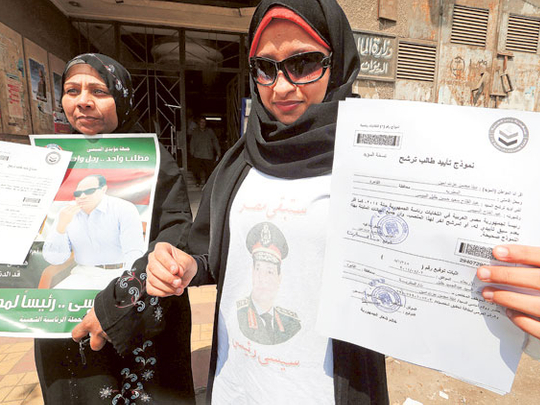
Sharqia/Egypt: For almost a year now, Mohammad Sharawi, 27, has been staying in his Nile Delta town of Sharqia doing almost nothing since he lost his job at a bazaar in the Red resort of Sharm Al Shaikh.
“The owner of the bazaar could not cope with the losses he suffered due to the sharp decrease in tourists to the area. He dismissed me and closed the shop,” said Sharawi. “The situation has been bad since the revolution against Mubarak,” he added, referring to a 2011 uprising that forced president Hosni Mubarak out of power. “Things have got worse since the overthrow of Mohammad Mursi,” he said, referring to the military’s ouster of Egypt’s first democratically elected president in July last year following massive street demonstrations against his one-year rule.
“Thank God I am not married, otherwise my wife and children would have died of hunger,” said Sharawi, who sometimes assists his father in running a roadside kiosk.
Tourism, one of Egypt’s key foreign currency earner, has been hard hit by the post-Mubarak turmoil.
The country’s tourism revenues dropped to $5.9 billion (Dh21.66 billion) in 2013 against $10 billion in the previous year with around a 41 per cent plummet, according to government figures.
In February, the Egyptian tourism suffered a fresh blow when a suicide bomber attacked a tourist bus in Sinai, killing four people, including South Koreans. The attack, blamed on Islamist insurgents, prompted seven Western countries to advise their nationals against visiting Egypt.
“I hope the new president, whoever he is, will be able to correct the situation and help us earn our bread and live in security,” said Sharawi. “Talk about democracy has brought us nothing except violence and bloodshed. What we badly need now is to restore stability so that we can get back to work and make tourists feel safe when they come to our country.”
Sharawi’s view echoes the sentiments of many Egyptians, who crave stability after more than three years of turmoil.
The country is due to go to polls next month to elect a new president in elections expected to be easily won by ex-army chief Abdul Fattah Al Sissi, the architect of Mursi’s ouster.
“Democracy is a word only used by those who have a life of luxury,” said Reda Mahmoud, a farmer. “As for poor people like us, we need first to feed and clothe our children. Farming is no longer a rewarding job because of the high prices of fertilizers and low prices of crops. Most farmers have recently sold their pieces of land in return for a lot of money to merchants planning to use them for building purposes. This is a disaster for Egypt because it deprives it of fertile land, which is being turned into buildings.”
Mahmoud, a father of five, firmly believes that Al Sissi as a president can make things better.
“He is a brave man, who removed Mursi and his Brotherhood when he saw they were bad rulers. He can re-establish order and discipline and help the poor live decently as Abdul Nasser did,” he said, referring to Jamal Abdul Nasser, an ex-military man, who ruled Egypt from 1954 to 1970.
Nasser is still popular with Egypt’s farmers and workers due to his socialist policies.
“It is obvious that the top priority for Egyptians is to eke out a living and have security, with freedom and democracy taking a back seat,” said political commentator Amr Khafaji. “These are the main demands for Egyptians, who are increasingly worried about economic decline,” he wrote in the independent newspaper Al Shorouk. “Egyptians impatiently wait for announcing the name of the new president. I believe afterwards they will no longer be able to exercise patience to see their life getting better.”
Four presidential hopefuls, with Al Sissi taking the lead, have already declared running for the top post. The final list of contenders is to be officially announced on May 2 and the vote to be held on May 26-27. If no candidate secured outright majority, a run-off vote will be staged on June 16-17.











